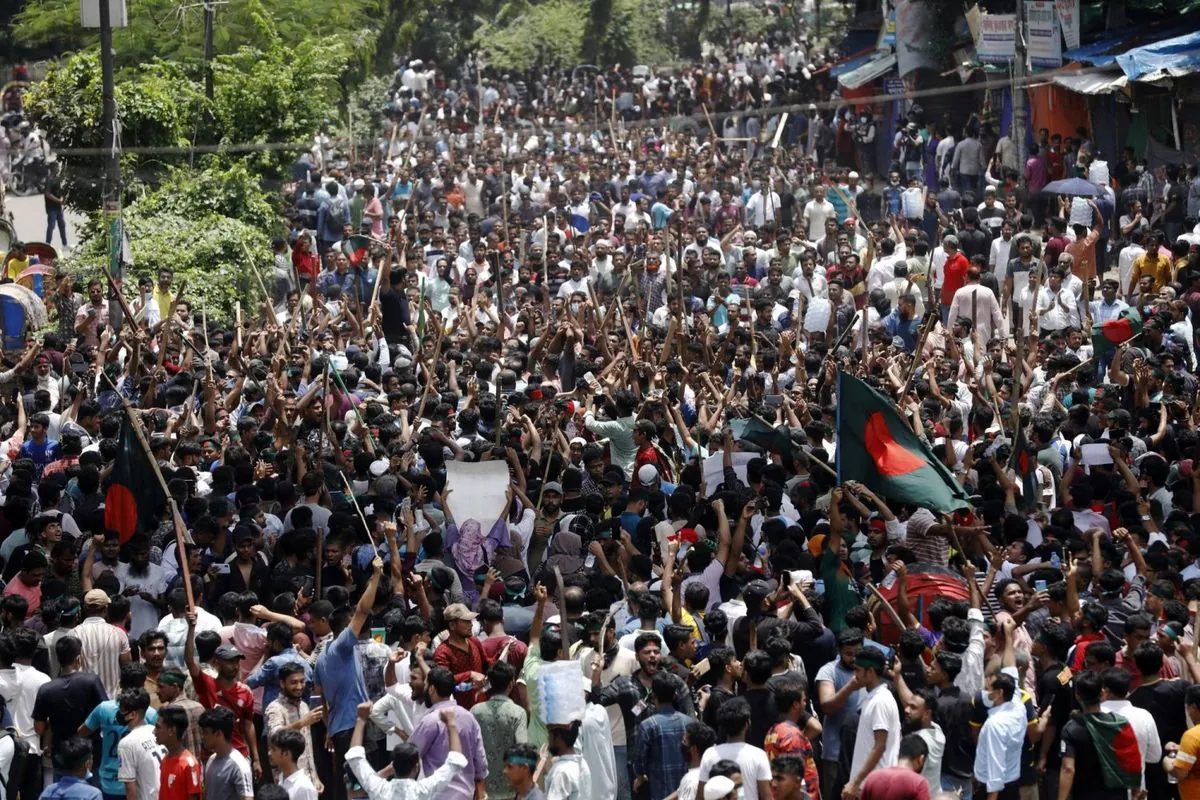In a display of solidarity, hundreds of citizens gathered in Dhaka, the capital of Bangladesh, to protest against the recent surge of violence targeting the country's Hindu minority. This unrest follows the unexpected resignation of former Prime Minister Sheikh Hasina on August 5, 2024.
The demonstrations, which took place on August 9, 2024, saw protesters carrying placards and chanting slogans such as "who are we, Bengali Bengali," emphasizing national unity. The protesters appealed for peace and called for the protection of minority communities in the country.
The violence, which has reportedly affected 52 out of Bangladesh's 64 districts according to the Bangladesh Hindu Buddhist Christian Unity Council, has resulted in the tragic loss of a school teacher's life and injuries to at least 45 individuals. Hindu homes, businesses, and places of worship have been targeted in these attacks.
"There is deep apprehension, anxiety and uncertainty among minorities across the country"
This recent turmoil has highlighted the complex religious dynamics in Bangladesh, where Hindus constitute approximately 8% of the country's 170 million population. Historically, the Hindu community has been supportive of Sheikh Hasina's Awami League party.
The international community has expressed concern over the situation. The United Nations Secretary General's office has called for the violence to be "tamped down" and emphasized its stance against racially motivated attacks or incitement to violence. Similarly, Indian Prime Minister Narendra Modi has appealed for the "safety and protection" of Hindus and other minorities in Bangladesh.
In response to the crisis, Muhammad Yunus, the Nobel Peace Prize-winning economist, has assumed the role of head of a caretaker administration. In his inaugural address, Yunus pledged to ensure "democracy, justice, human rights, and full freedom of fearless expression" for all citizens.
This recent unrest occurs against the backdrop of Bangladesh's rich history and ongoing development. Since gaining independence in 1971, the country has made significant strides in various sectors. Despite being one of the most densely populated nations globally, Bangladesh has shown remarkable progress in poverty reduction and economic growth, emerging as one of Asia's fastest-growing economies.
The current situation underscores the delicate balance between Bangladesh's cultural diversity, religious harmony, and political stability. As the nation navigates these challenging times, the world watches closely, hoping for a peaceful resolution that upholds the rights and safety of all Bangladeshi citizens, regardless of their religious affiliations.
